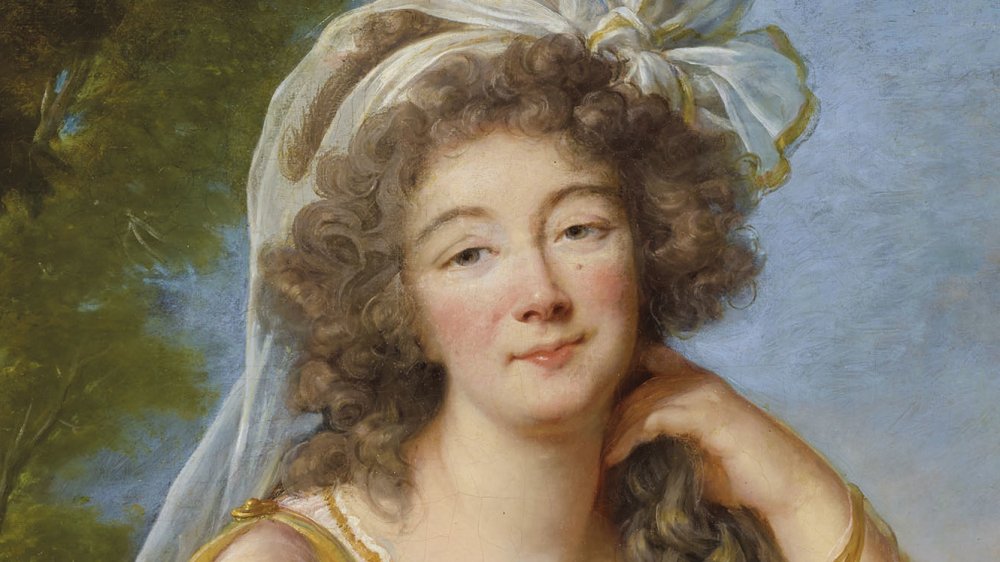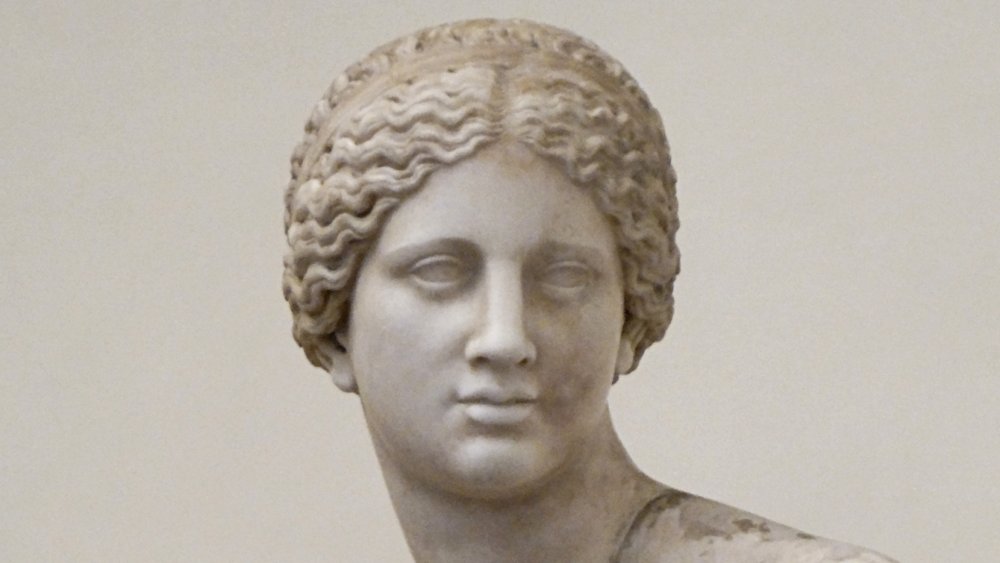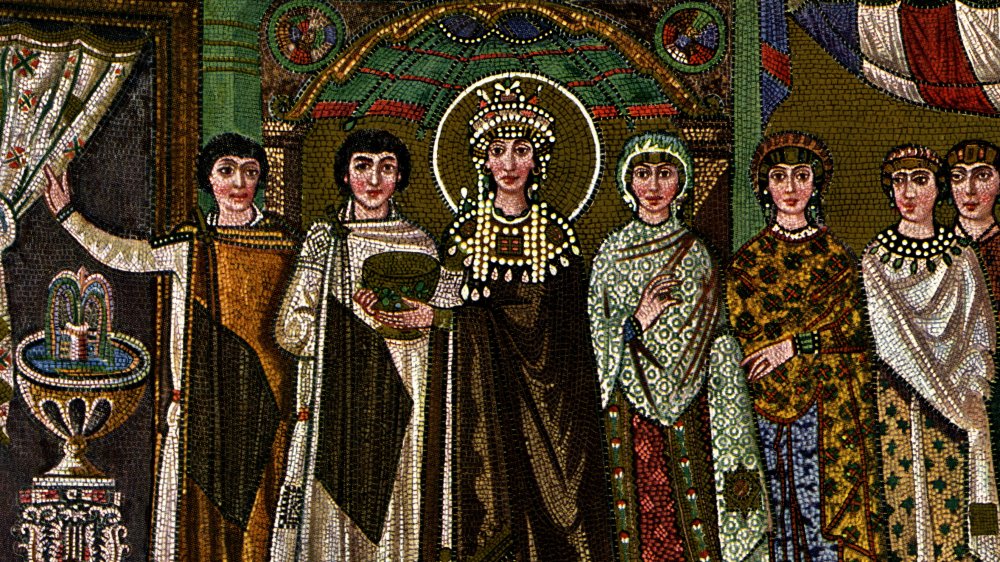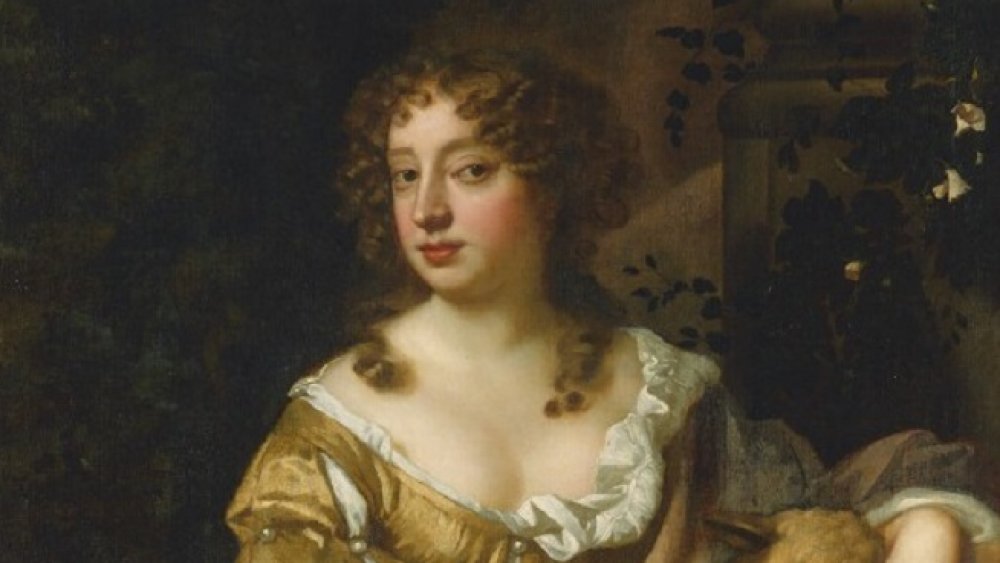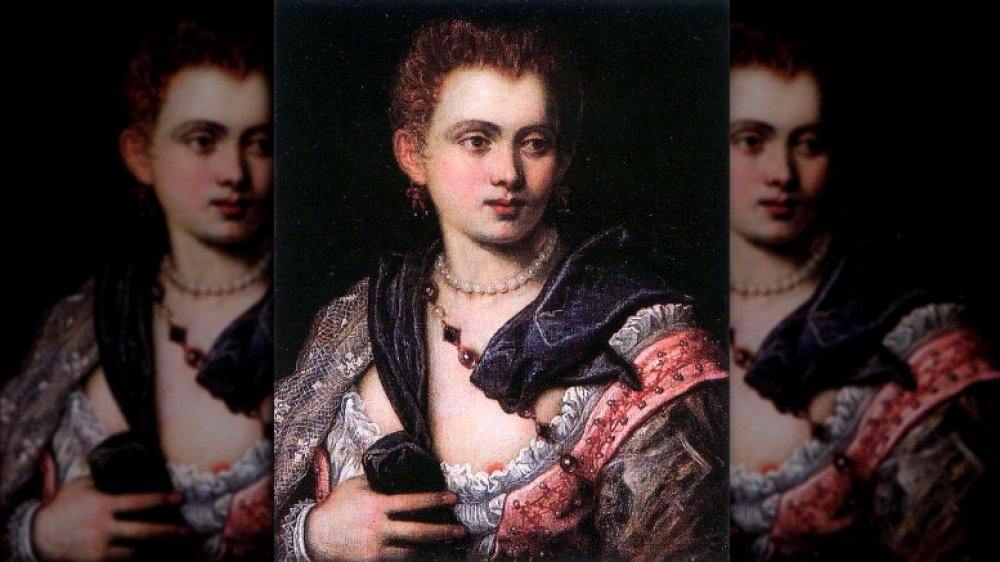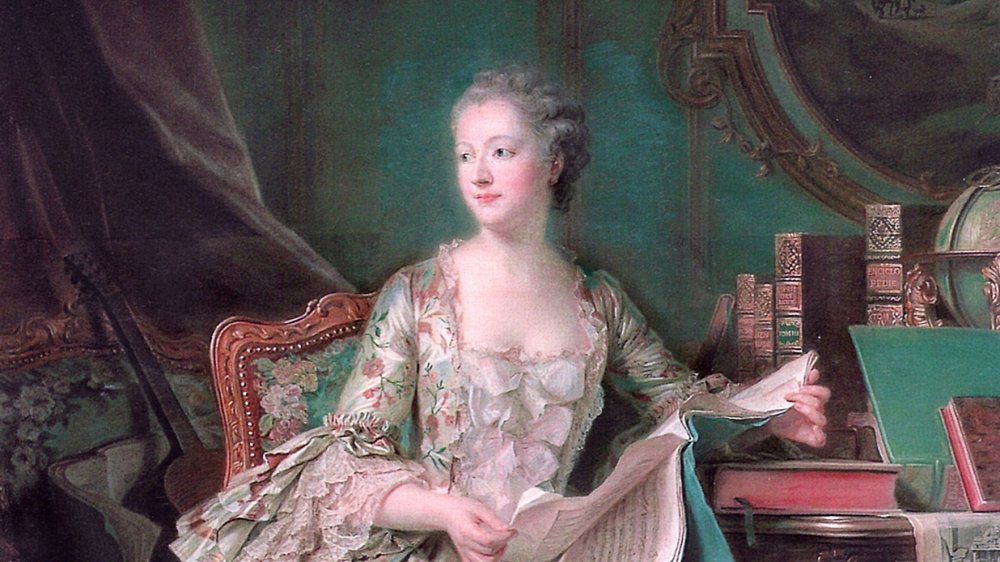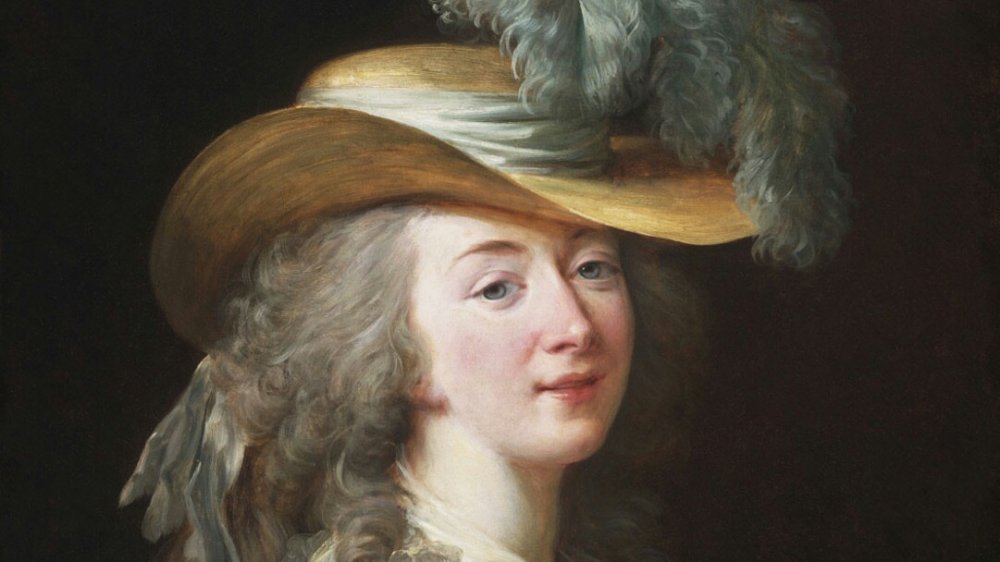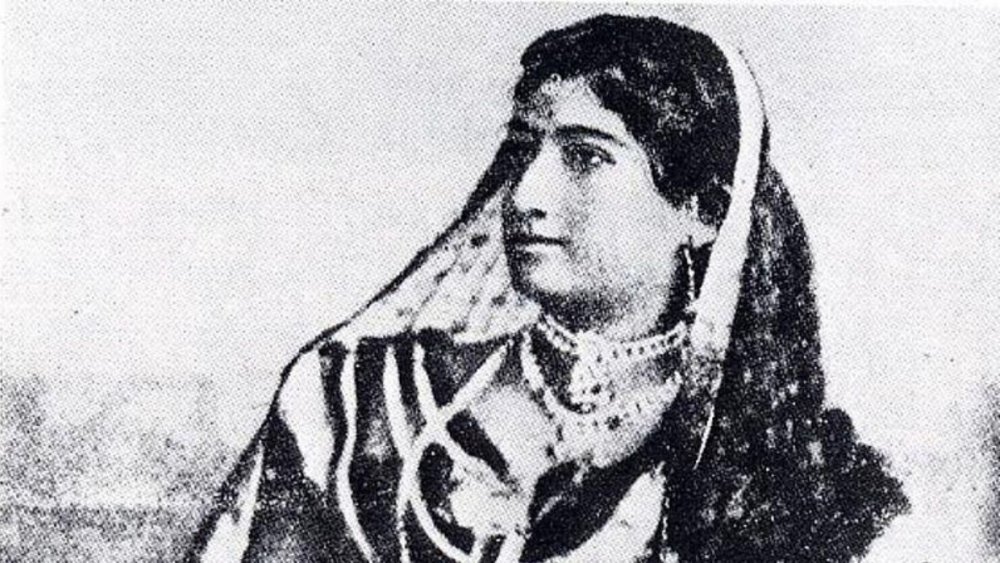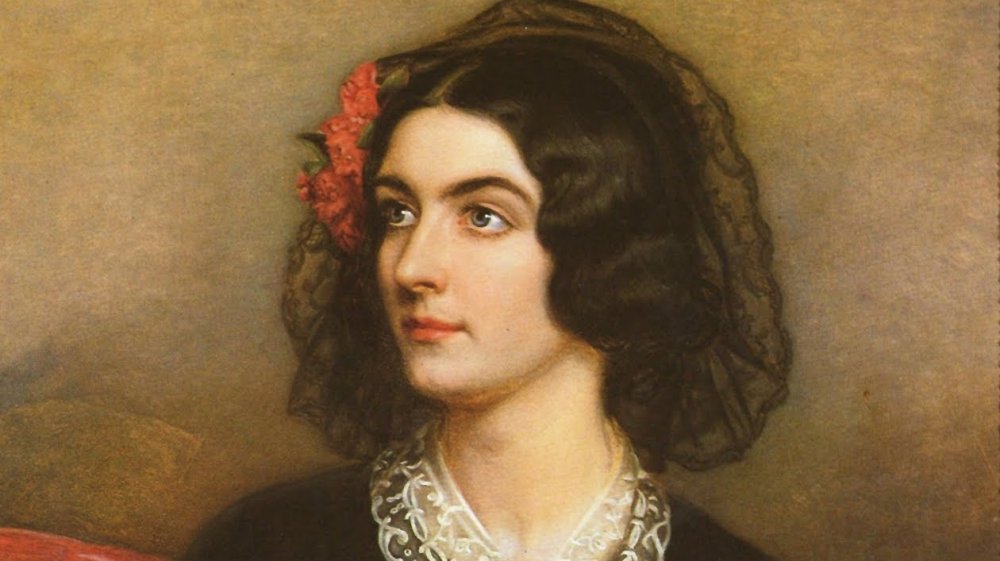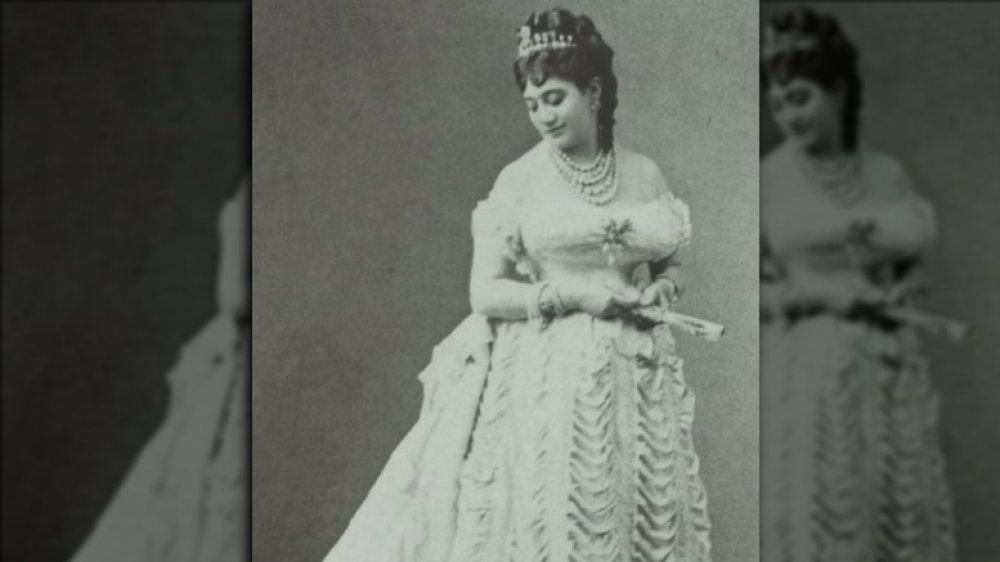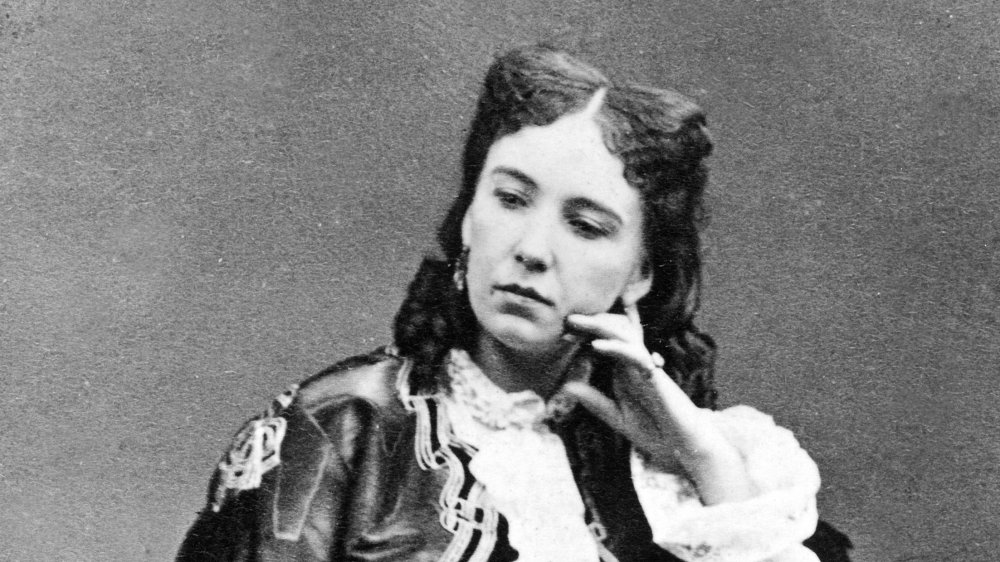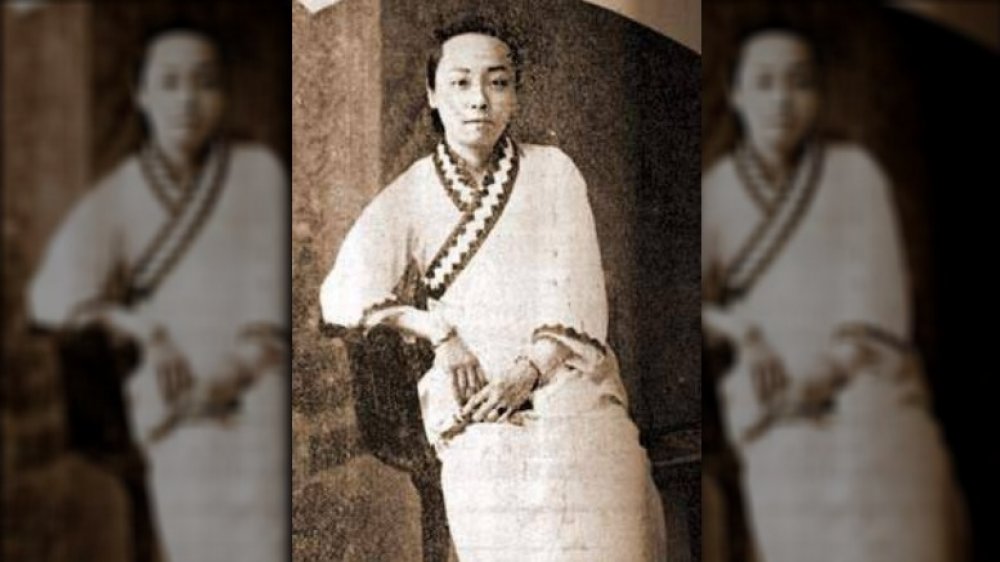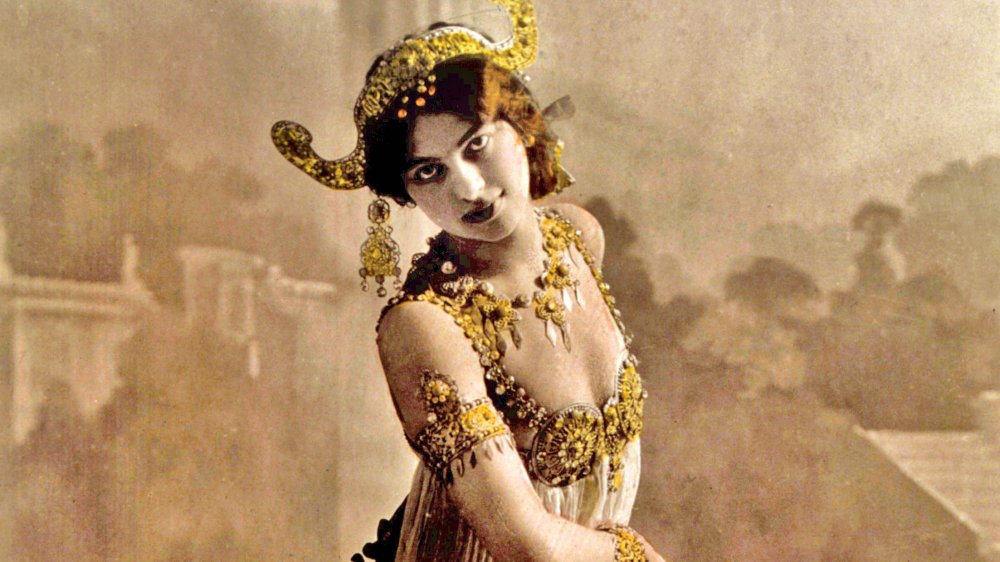The Crazy True Stories Of History's Most Infamous Courtesans
Courtesans from the days of old are remembered for what they were: high-class mistresses of the wealthy and powerful. It wasn't a bad deal when women often had to struggle for survival if they didn't have the good fortune to be born into a respectable family. Even if a woman remained unmarried, as long as she had money, she could have independence.
But for some, being a courtesan was only a fraction of who they were. Many had interests outside of being mistresses. Some were actresses, others were poets. They could be bright enough to earn a place in an elite salon with other renowned intellectuals. The ones who were exceptionally intelligent and met the right men could influence government policies. Many of these women were highly complex and fascinating women, some of whom were ahead of their time. These are the crazy true stories of history's most infamous courtesans.
Phryne: The living Aphrodite
Phryne was born in the ancient Greek city of Thespiae, though she found her fame in Athens. Her real name was Mnesarete, but she gained the nickname "Phryne" — meaning "toad" in Greek — due to her sallow complexion. While not the most flattering of names, Phryne was widely recognized as a great beauty in ancient Athens and Thebes. Phryne was a prominent artists' model (and lover) who posed for many famous sculptors and painters. Her likeness was often used in depictions of Aphrodite (including the one pictured), the goddess of love and beauty. Thanks to her work as a model and courtesan, Phryne became an incredibly wealthy woman — possibly the richest self-made woman of her time.
However, according to Britannica, Phryne is best remembered for her infamous performance in a court of law. She was apparently accused of a capital crime (it's not clear what the charge was, but it may have been blasphemy), and it appeared her case was lost. However, Phryne was released after her dress was torn open (accounts differ as to whether it was her lawyer lover or Phryne herself), displaying her breasts to the judges. The judges were apparently in awe of their perfection and they agreed that only the gods could have molded such beauty. Phryne was released when the judges concluded that imprisoning such a looker would disrespect the gods.
Theodora: The courtesan turned empress
Theodora lived an unconventional life from the beginning. Her father was a bear keeper at the Hippodrome (the circus) in Constantinople in the 6th century. As noted by Britannica, when her father died, her mother trained Theodora and her sisters in theatre performance. By 15, Theodora was the star performer of the circus. At that time, an actress was seen as synonymous with high-end prostitution, and she likely became the mistress of many wealthy patrons. At 18, Theodora left her theatre career to be the mistress of Hecebolus, the governor of Libya. When their relationship ended, Theodora joined a community in the Alexandrian desert where she converted to an early form of Christianity.
According to The Guardian, at 21, Theodora returned to Constantinople and met Justinian, nephew of the Emperor Justin. Justinian fell in love with Theodora's beauty and intelligence and managed to change the legal code (because of Theodora's background), so he could marry her. After his uncle died, Justinian took the throne with Theodora as empress. Theodora was an incredibly intelligent woman and highly adept in handling political matters. It's widely believed that she was the real ruler of the empire. She also worked on legislation that advocated for women's marriage rights, passed anti-rape laws, and set up a safe house for former prostitutes, making Theodora a prime example of an early feminist.
Nell Gwynn: The actress
"Pretty, witty, Nell" got her start as an orange seller at the Drury Lane Theatre in the 1660s. Although illiterate, Nell Gwynn had a winning personality — warm, witting, and charming — which caught the attention of the theatre's lead actor, Charles Hart. According to Britannica, Nell became Hart's mistress, and that position gave her a chance at acting. Before long, Nell was the company's leading actress and best-loved comedienne. Her popularity in the company attracted the interests of the upper-class, and Nell became the mistress of Charles Sackville, Lord Buckhurst, before capturing the attention of King Charles II himself. Nell wasn't Charles II's only mistress — he had several of them — however, Nell was supposedly the least greedy. She was content with a beautiful new house, a yearly pension, and a title for one of her sons with Charles.
With her lovely new residence, she regularly entertained the king and his friends and lived lavishly. Overall, Nell was loved by the public and courtiers alike. One infamous story had Nell's coach attacked by a mob that mistook her for Charles's hated Catholic mistress, the Duchess of Portsmouth. Nell leaned out the window and yelled, "Be civil—I am the Protestant wh*re!"
However, Nell's high-living resulted in deep debt. Knowing this, Charles II begged his brother on his deathbed to "Let not poor Nelly starve!" Charles's son, James II, ultimately paid off Nell's debts and granted her a pension until her death.
Veronica Franco: The poet
Known as the most famous courtesan in Renaissance Venice, Veronica Franco was famed not only for her beauty but also her intelligence. She was the daughter of a Venetian merchant and the courtesan Paola Fracassa. Although unmarried, Paola's children were generously provided for. Paola insisted that Veronica be given the same education as her brothers and taught her daughter to use her beauty and mind to ensure financial and social security. Besides being beautiful, Veronica showed great talent as a writer and poet.
As a teenager, Veronica was married off to an older doctor but soon grew bored with domestic life. She obtained a divorce, but found herself broke as a result. To make money, Veronica became a courtesan, which meant her talents were not merely physical, but intellectual as well. She earned enough to support herself and the children she had from her relationships. Veronica made no apologies for her profession, deeming herself an "honest courtesan."
According to the University of Chicago Library, with her intellect and writing skills, Veronica gained admittance to Venice's elite literary salons. She published books of her own poetry and challenged social conventions, calling for political and social rights for women as well as equal education. However, Veronica ran into financial trouble due to a plague epidemic killing her lovers, and an accusation of witchcraft didn't make things any better. She died destitute at the age of 45.
Madame de Pompadour: The political infuencer
Jeanne-Antoinette Poisson was the daughter of a disgraced financier who fled France, leaving his wife and children behind. Luckily, Jeanne and her family were supported by a family friend. Jeanne was given a substantial education to prepare her for becoming the wife of a rich man. The young Jeanne became an accomplished young woman who could hold her own at any elite salon, including with notables such as Voltaire. And she did secure an advantageous marriage — at least until Louis XV took notice of her in 1744. Jeanne legally separated from her husband, and the king granted her a new title: Marquise de Pompadour. With her title, position, and power, Madame de Pompadour became a champion and patron of the arts.
With her intelligence and charm, Pompadour kept the king entertained for years. However, she suffered from poor health, which brought an end to their romantic relationship. But that didn't mean Pompadour was ready to give up her position, and she remained the king's most trusted confidante. In fact, Pompadour was Louis XV's top political advisor and enjoyed an immense level of power in domestic policy and court dealings. According to Smithsonian, she controlled the king's schedule and sometimes made political statements on his behalf. Although, her dealings in international policy ultimately led to the Seven Years' War, where France was embarrassingly defeated. After that, Pompadour mostly stepped back from foreign affairs, and died at age 43.
Madame du Barry: The Paris gutters to Versailles
Madame du Barry was the last of Louis XV's mistresses — and probably his most infamous. Unlike Madame de Pompadour, du Barry started among the lowest of the low. Jeanne Bécu was the illegitimate daughter of a seamstress. As a teenager, Jeanne caught the attention of casino owner Jean-Baptiste du Barry, who, according to The Value, was no better than a high-class pimp. Although Jeanne was low-class, she was exceedingly beautiful — which meant she had potential. Jean-Baptiste established Jeanne's career as a courtesan in Paris by introducing her to numerous wealthy noblemen. He then saw an opportunity to get Jeanne into Versailles as a mistress to the king. Jean-Baptiste arranged a marriage for Jeanne to his brother, the compliant Comte Guillaume du Barry — giving Jeanne the noble title required to join the court.
Louis XV was in his late 50s when he met Madame du Barry, but she quickly won his favor. However, even as the king's official mistress, du Barry struggled to gain recognition from prominent people at court. Knowing of her low birth and shady past, du Barry was probably the most despised person at Versailles. After Louis XV's death, du Barry was banished from court in disgrace. She eventually retired to Luciennes, where she continued to entertain lovers. When the French Revolution came, du Barry was arrested as an enemy of the Republic and guillotined in 1793.
Binodini Dasi: The thespian
Born into extreme poverty to a family of prostitutes in India in 1863, Binodini Dasi didn't have many options — until she discovered the theatre. Binodini had natural talent as an actress, and by the time she was 12, she came to be known as the most famous actress in 19th century Bengal. According to Firstpost, she is also among the first Indian actresses to play female roles.
Binodini's true love was the theatre. A beautiful actress, she attracted wealthy patrons. While theatre came first, Binodini was willing to barter herself to wealthy men to further her career. But Binodini's dream was a theatre of her own. When wealthy businessman Gurmukh Ray offered to finance her dream theatre and name it after her if she would become his mistress, Binodini agreed. She reasoned this temporary arrangement would be worth it if she could have the professional advancement and stability she craved. The theatre was built, but it was named "The Star," out of fear that audiences wouldn't attend a theatre named after a "fallen woman." Binodini was outraged but worked at the theatre for three years before quitting acting forever at 23. She remained Ray's mistress until the end of his life.
It's unclear why she left the theatre, though some speculate that it was due to conflict with her more puritanical colleagues. Later, Binodini would write her autobiography detailing the betrayal, abuse, and exploitation she suffered.
Lola Montez: The dancer
She had a Spanish name, but Lola Montez was born in Ireland in 1821 and christened Eliza Gilbert. As described in Britannica, the teenage Eliza eloped with Lieutenant Thomas James but left him five years later to start a dancing career. During her debut performance in London under the new name of "Lola Montez," she was recognized as "Mrs. James," which almost brought her career to an end before it could begin. But Lola didn't let that stop her. Instead, she left London and booked performances throughout Europe. During this time, it's believed that she had relationships with the novelist Alexandre Dumas and composer Franz Liszt.
After performing in Munich, Ludwig I of Bavaria was so smitten with her, he offered her a castle — which Lola graciously accepted. In becoming the king's mistress, Lola was granted the titles of Countess of Landsfeld and Baroness Rosenthal. However, she was decidedly unpopular in Bavaria when she started influencing Ludwig to pass more liberal policies, angering the conservative population and the Jesuits. Lola was also hoping Ludwig would give her Bavarian citizenship and elevate her to nobility status. According to the Irish Times, in 1848, riots broke out in Bavaria against her, resulting in Ludwig's abdication, and Lola was forced to flee the country.
She went on to marry two more times and eventually settled in the United States. In her later years, she had a religious conversion and took up philanthropy.
La Païva: The tough broad
Born destitute in Russia to German and Polish Jews in 1819, Esther Lachmann found herself married at 17 to a tailor with tuberculosis. Soon after their son was born, she left to make her way in European society. According to BBC, Esther had a taste for French culture and decided to try Paris first. She tested a few French names for her courtesan alias, such as "Blanche" and "Therese" before receiving the name La Païva from her second husband, the Marquis de Païva. La Païva wasn't known as an exceptional beauty; accounts describe her as "large" and "mannish," but she had enough charm, grit, and determination to make up for it.
La Païva spent the next few decades hustling various men throughout Europe and coldly discarding them once she had the wealth and property she wanted. Each man she moved on to was richer than the next, allowing La Païva to enhance her fortune. She had a reputation for having a tough, hard-bitten personality. However, her decline came in 1871 during the Franco-Prussian War. Being a Jewish woman with a Prussian husband brought her under suspicion of being a German spy.
La Païva spent the rest of her life in Poland. When she died in 1884, her last (and wealthiest) husband was so heartbroken he had her body embalmed in alcohol and stored in the attic.
Cora Pearl: The English girl turned Parisienne
Born in Portsmouth in 1836, England, Emma Crouch got her love of French culture and language fluency from a French boarding school. After returning home from France, Emma was assaulted in London, where she had been living with her grandmother. After that, Emma took a room and entertained gentleman callers. One of her lovers took her to Paris, where she decided to remain and changed her name to Cora Pearl.
According to The Vintage News, Cora Pearl climbed through Parisian society, obtaining various "protectors" of high status. Her most notable lovers included the Duke of Rivoli, the Prince of Orange, the Duke de Morny, and Prince Jerome Napoleon. Through her wealthy lovers, Cora amassed a large fortune and lived the high life. However, the austerity of the Franco-Prussian War caused Cora's popularity to fade. Cora's lavishness was seen as vulgar; fewer men were willing to finance her lifestyle.
In one story, Cora begrudgingly accepted the attentions of the wealthy Alexandre Duval out of financial necessity but ended the relationship when he became overly obsessive. The unhinged Duval showed up at her home with a revolver and, when trying to break in, accidentally shot himself. Duval recovered, but Cora was still blamed. By 1885, Cora was penniless and living in a boarding house after selling off all her assets to pay the bills.
Sai Jinhua: 'Prettier than Golden Flower'
Sai Jinhua ("excellent golden flower") was born in Beijing around 1872 and orphaned by age 12. Her only option was prostitution. She developed a relationship with one of her wealthiest clients — an aging ambassador who took Jinhua to Europe with him where she learned fluent German. International travel was highly unusual for Chinese women at the time, making Jinhua quite unique. When the ambassador died, his family kicked her out. Penniless, she went back to prostitution.
Eventually, Jinhua opened a high-end brothel in Beijing, a favorite spot for local dignitaries. Then came the Boxer Rebellion. Rebels were hell-bent on ridding China of external influences, and foreigners were being murdered. In response, allied forces — led by German commander Alfred Graf Von Waldersee — seized control of Beijing. This was Jinhua's chance to shine. Using her fluent German, Jinhua mediated between the Germans and the Chinese. And the German occupation proved prosperous for business; she regularly provided girls for the soldiers and started a relationship with Von Waldersee himself. Jinhua also used her influence to free Chinese political prisoners.
In China, she was somewhat controversial; some thought her a hero, others a traitor. However, Shine says that after the death of a brothel girl, Jinhua was banished from Beijing. She married two more times but always came away broke. Eventually, she settled in a shack in Tianqiao until she died in 1936.
Mata Hari: The spy
Media has made Mata Hari the ultimate femme fatale — a combination of beauty, seduction, and intrigue. Originally from the Netherlands, according to Britannica, Margaretha Zelle escaped to Paris after leaving an abusive husband and reinvented herself as the glamorous striptease dancer, Mata Hari. With her rudimentary knowledge of East Indian dances and willingness to appear naked in public, Mata Hari was an exciting figure in major European cities. She had numerous lovers, most of them military officers. As noted in Time magazine, even when Mata Hari began losing popularity when younger and more agile dancers arrived on the scene, she still had success as a courtesan, seducing wealthy European officers and high-ranking government officials.
While she's best remembered as a spy, the truth of her spying days are underwhelming. Being Dutch and therefore neutral during the days of World War I, Mata Hari was able to cross European borders with little trouble, though it made her subject to suspicion. Her relationships with both French and German officers didn't help, either. According to History, there is evidence that she may have acted as a spy for both the French and Germans, but neither side found her a particularly adept. The intelligence she brought was never instrumental. When the French discovered her supposed duplicity, she was arrested. After a trial by a military court, Mata Hari was executed by a firing squad in 1917.
